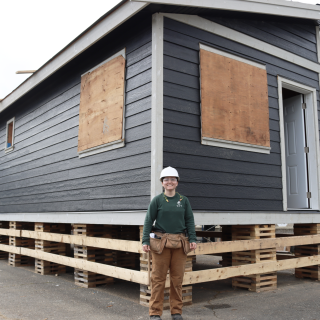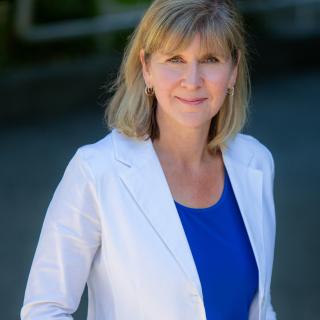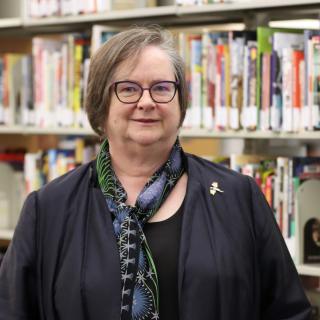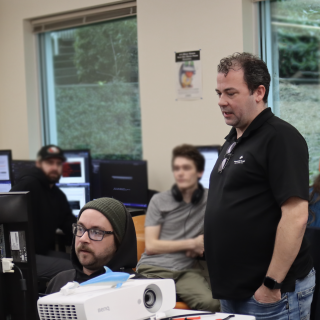Vancouver Island University is a hive of incredible, creative activity. We like to share as much of it as we can. Check out our Q and A with Creative Writing Professor Dr. Sonnet L'Abbe about her latest book of poetry, Sonnet's Shakespeare.
1. Tell us about you and your background.
My name is a combination of parts of my parents' names, Jason and Janet. I was born in Toronto, but we moved around a lot when I was a kid. We lived in Barrie, in various places in Calgary, and then outside Winnipeg, before my family settled in Kitchener-Waterloo, Ontario. My mom is from Guyana and is of African and South Asian descent, and my father is of Québecois/French descent. I've written about identity, belonging, cultural assumptions, language and race for much of my career. She/her or they/them, thanks.
2. What do you do at VIU? What department do you work in? How long have you been here?
I work in both the English and the Creative Writing departments. I write poetry and write academically about poetry. I've been here for three and a half years.
3. What is your favourite part of your job?
I love helping emerging writers strengthen their skills. It's great to watch people discover what they have to say and watch them gain power in articulating their thoughts and conveying their experiences.
4. Where did you receive your education?
I did my undergrad at York, MA at Guelph and PhD at UBC.
5. How many books have you published?
This latest is my third full collection. I also have one chapbook.
7. Tell us about your upcoming book.
In Sonnet's Shakespeare, I invented a new kind of erasure poem. Each of my prose poems incorporates the entirety of one of Shakespeare's sonnets within it. I've put my own letters in and around the original text, and have had to shape my words to absorb his letters. When you read the poems, often you can forget that the Shakespeare is there. I put my own stories and observations into the space that Shakespeare occupies.
8. What inspired its creation?
I had been learning about erasure poets who blacked out or whited out words and letters from source texts in order to create new compositions. What really struck me was the way in which such a process showed how a writer could delete or silence an existing voice and leave only their own framing of what had come before. I was most interested in the way a writer could comment on, or critique, editorial practices that did that kind of silencing. Then I reflected on my own experiences of feeling heard, and thought, deleting or erasing isn't the only way to silence an existing voice. One, or many, can do it simply by being much louder than, or by talking over, an existing voice. I wanted to create a process that tried to grapple with that dynamic.
9. Is there something about cheeky/humorous about this latest? Sonnet’s Shakespeare? What’s the joke you’re hoping people get?
It's me owning the bard, that's all. I'd been sheepish for many years about writing poems while being named Sonnet; I was always explaining that I didn't pick my own name. I decided to just go hard the other way. Fortunately this great pun fit the book's concept.
10. Humour aside, why did you decide to publish this book?
The book, I hope, asks questions about why Canadians study the literature that they do and questions the centrality of British values in a culture that is informed by so many ancestries. It overwrites a bunch of lovesick notes from a silver-penned British dude with questions about the lands that I have grown up on, whose ancestral places I inhabit, whose government I am subject to, and whose cultural values I've been asked? forced? encouraged?, by social and institutional forces, to adopt. The book speaks to the very personal impact of unspoken Eurocentric values in the communities I've tried to thrive in and love in. I hear it's also pretty funny.
11. When is the book launch?
Wednesday, September 25, at the Nanaimo Art Gallery, 6:30 p.m.
12. Anything else you’d like to say?
Huy ch q’u siem to the water, trees, mountains, fish, animals and air of this place, and huy ch q’u siem to the people who keep the east mid-island's oldest stories and languages and who embody its oldest cultures. Thanks and respect to all those who keep the ancestral languages and embody the longest-standing cultures of all the territories I've grown up on.




